By Uran Kalakulla
Part Forty
Nazism and Communism
Memorie.al / Nazism lasted 12 years, while Stalinism lasted twice as long. In addition to many common characteristics, there are many differences between them. The hypocrisy and demagogy of Stalinism was of a more subtle nature, which was not based on a program that was openly barbaric, like Hitler’s, but on a socialist, progressive, scientific and popular ideology, in the eyes of the workers; an ideology that was like a convenient and comfortable curtain to lie to the working class, to lull the sharpness of intellectuals and rivals in the struggle for power.
One of the consequences of this peculiarity of Stalinism is that the entire Soviet people, its best, capable, hardworking and honest representatives, suffered the most terrible blow. At least 10-15 million Soviets lost their lives in the torture chambers of the KGB, martyred or executed, as well as in the gulag camps and others like them, camps where it was forbidden to correspond (in fact, they were prototypes of the Nazi death camps); in the mines in the ice of Norilsk and Vorkuta, where people died from cold, hunger, from crushing work in countless construction sites, in the exploitation of forests, in the opening of canals and during transportation in leaded wagons, or in the flooded barns of the death ships.
Continued from the previous issue
But his attitude impressed me, especially his gloomy face, where both deep despair and great disappointment were clearly visible. On the contrary, I was somewhat closer to Dom Nikollë Mazrek, not very much, because he also preferred to withdraw into himself. I met him in Burrel prison, and for a while we even spent time in the same room (in my last years in prison), even facing each other. All day long, he would sit face down on his books and manuscripts, just as I usually did.
Each at his own work. At that time, he had just finished the voluminous novel about Skanderbeg (which he did not let me read), as well as a novella with a bucolic character. He gave the latter to me and I expressed my opinion to him, after he asked me. But Dom Nikolla was more open than Father Konradi, towards society. He even knew how to joke, often with a very subtle irony (especially) towards the reality we were in, with some of his typical jokes.
And that’s it. I must admit that I had respect for him. It was his second or third prison, between continuous internments. He was a man who, from his height, had a muscular body and strong hands, looked like a manual worker, since during his internment he had practiced, in order to live, several types of crafts in the field of construction.
He seemed to be a man of iron will and courage. But what made me respect this man even more was the fact that he had given a deserved answer, through a brochure published before World War II, to an Italian Catholic missionary in priest’s clothing, with the surname Cordignano, who had worked in Albania for years and therefore had learned Albanian very well, to the point of having made one or two Italian-Albanian dictionaries and vice versa, which were valuable in the field of Albanian lexicography. Moreover, upon going to Italy, he had published a book or a brochure, where he spoke very badly about our country.
He had gone so far as to present Albanians as people with tails, thus trampling on the bread of the hospitable Albanian table, which he had not missed wherever he had wandered in Albania. Thus, the patriotic young man Nikollë Mazreku (I do not know if he was still a seminarian or had been ordained a priest), with his pamphlet, had done a hundred to this foreign breadwinner, a charade! I have even heard that this pamphlet was also in the hands of the first patriotic demonstrators against the Italian fascist occupation of our country, between 1939-1940.
In the Burrel prison, I met Father Gegë Lumë. I think he was from Dukagjini and had become a priest in his own region, living like this, almost his entire life, among the mountains and the inhabitants of that area. As a result, he knew the Kanun of Lekë Dukagjini by heart, in all its details, to the point that he was able to quote article by article and paragraph by paragraph, this old monument of the law of our mountains and, why not, of civic life for a long time, especially in the part of Gegëria.
Father Gege Luma was a man in his seventies. He had a short, slender body, with a Socratic head, where a large, somewhat convex forehead was especially noticeable. He also had a sharp and regular face, where two eyes stood out, in which both the goodness of the soul and wisdom shone, as well as seriousness, determination and bravery.
Father Gega, as a mountaineer and as a cleric, had at the foundation of his soul two main elements: the unwavering worship and obedience to God and the teachings of Christ, on the one hand, as well as the unwavering resistance, typical of the classical mountaineer of those parts.
He had completed two faculties at once in Italy, which was common for priests and, in general, for Catholic priests: the faculty of Theology, first, and, secondly, that of the Art of Painting. But, in his life in the mountains, he had little or no interest in the field of art, having served more the teachings of religion.
When it came to this or that great classical painter, especially those of the great Italian Renaissance, he never tired of praising Michelangelo, Raphael or Da Vinci. As for later painting, before and after Cubism, he did not like to talk; even though he didn’t know him at all, and could even despise him.
It goes without saying that he also had a not bad literary education. Of course, he knew Dante, Petrarch, but he didn’t like Boccaccio (it seems because of the liberal scenes of the Decameron). Meanwhile, he would hymn some passage of Tasso’s “Jerusalem Liberated” because, necessarily, it had to do with the tomb of Christ. But, above all, he knew by heart the entire “Lute of the Highlands” and, then, we would start reciting together, while we would walk around the prison yard; sometimes Marash Uci and sometimes Kerrni Gila. And so on. But in this regard, he surpassed me several times.
Such a man could not help but have a solid moral world. I never saw in him any signs of fear, hesitation or despair. Life for him was nothing more than a test given to people to test whether they deserved eternal life in purgatory, in heaven or in hell. Thus, every iniquity of life, every danger, every unforeseen, unexpected turn was part of the predetermined path for every person, by God himself. Therefore, man must be calm, patient, prudent and not give in to temptations, which are the incitement of the devil, and even less to anger, resentment, revenge, and wrongdoing, but to always try to do good and only good.
But when I asked him (to be honest, with a certain mischief), if we should forgive our executioners for what they had done to us and for what they continued to do to us, Father Gega would frown for a moment on his gloomy face and only then would it brighten up again, as if by divine inspiration, and he would answer me with the words of Christ on the cross:
“Forgive them, O Lord, for they know not what they do”! Thus, in those few moments of hesitation, to answer my question, he was inwardly in a struggle between the psychology of the mountains and the spirit of the Canon and the teachings of Christ. That small old man, surprisingly very alive in movement and in every action of daily life, was loved and respected by all the prisoners, good and bad. His word was like a law, which had to be respected because it did not work.
I have seen it many times between two quarreling groups, who were ready to fight each other, not only separating the angry ones, but also holding a trial between them, to separate the guilty from the innocent; just as the elders and chief elders of a village once entered our mountains, to establish peace between the people, to give justice among them. And, in this case, Father Gega was the true and accurate representative of the Kanun of Lekë Dukagjini.
Although he was poor, because they rarely sent him any money or anyone came to his prison door, he was very generous and did good without being noticed, as befits a true nobleman of the soul. Father Gegë Luma was also a great patriot.
And, when we went through together as in a parade the iniquities that Europe had done to us, this “weather whore” of Fishta, or the predatory neighbors, the old priest’s face would turn red with hatred towards these iniquities, the blind tools of evil of the devil and his indignation would explode suddenly, forgetting in those moments that he was a priest and a servant of the word of God. Then I truly understood that Father Gegë Luma, first and foremost, was and would die a true Albanian. He was released before me. When we parted, I felt a great emptiness in my soul. And we never saw each other again.
But, deep down in my heart, I still keep alive the image of that good old man, who had two very great values in his being, which I would like to emphasize once again: a man of God and a worthy son of our long-suffering nation. A couple of years before my release, I was in the same room with another Catholic cleric, also from Shkodra: the good, almost angelic old man, Dom Ndoc Ndojë. Dom Ndoci had studied theology in Genoa, Italy, and, like Father Gegë Luma, he had also completed two faculties.
In addition to theology, he had also studied geography. But, the coward, he had forgotten almost everything about this discipline, because he had been a priest in the village of Bilaj in Fushë-Krujë all his life. The truth is, he had done brilliantly at university. Therefore, a couple of American Catholic prelates had insisted on convincing him to take him with them to their country as a priest.
But Dom Ndoci had not accepted in any way. Despising the comfort and wealth of life in America, he had told the Americans that he had changed his mind: “he had been born in Albania and wanted to die in Albania, helping only his fellow countrymen to walk in the path of God”! From Genoa to Bilaj and in every small and poor village of his country.
The Albanian priest was the brother of one of the five heroes of Vigu, Ndoc Mazi. He had a brother from his mother, but with a different father. Thus, two brothers, on two completely different paths from each other: Ndoc Mazi with communism, Ndoc Ndoja with Christianity! And, while Dom Ndoci lived in the simplicity and poverty of a village like Bilaj, his mother in Shkodra lived in her own house, with a good pension that the communist government of Enver Hoxha had given her as the mother of the “People’s Hero”.
Thus, when religion was banned and the churches and mosques were destroyed, the poor priest, now without any source of life, had taken with him the holy books, the machine that made the host, the gilded cross of the church, the holy rosary with the incense in it and had taken refuge with his mother, so that they could share the bread together. But, did Dom Ndoci live without following the precepts of religion? No way!
Thus, secretly, in a room of his mother’s house, of course, with her full consent, the old priest now continued to “celebrate mass”, with his mother’s faithful friends. But, of course, this secret work also got to the ears of the authorities, but Dom Ndoci was spared as long as his mother was alive, because the dictator himself had brought her to the tribune on festive occasions. So, his Shkodra sejmen had not stopped him from touching his son until then.
When his mother died, the old priest was sad. Meanwhile, someone secretly brought him something to eat. Some old woman dared to go to confess her sins and brought him something in her bag hidden under her jacket. This is how the “secret” priest continued to live. And, when he went to his mother’s grave, he would make something like a cross and put it on top of the grave.
The Front activists, who did not leave the dead alone, would destroy his cross. Then Dom Ndoci would make a cross for his mother on the grave with white pebbles, collected from the gravel of the Kir River. The frontists also ruined this kind of mosaic, Dom Ndoci repaired it again, not ceasing at the same time to lead mass and distribute hosts.
But, finally, “oppression” defeated him and the Sigurimi put him in handcuffs. They sentenced him to prison and, on a cold winter day, they brought him to the Burrel prison, straight to the room where I was. Dom Ndoci was a short man, round-faced, white-haired, with two sweet eyes, in which his angelic kindness stood out beautifully. At no time did I see him get angry or show the slightest sign of nervousness.
On the contrary, he was always gentle, smiling, and when he spoke, he never raised his voice. He also liked to joke and, when there was a chance for humor, he laughed heartily. Apparently, he was born especially to become a man of God: wise, obedient, of few words, low-voiced, simple in everything, very kind, merciful, ready at any time to help and worry about the troubles of others.
I have known many types of people in prisons and prison camps, but I have never met one like him. Even among the clergy. As I have said before, Father Konrad was serious and gloomy, almost like Dom Nikolla and Father Gegë Luma, with a body like Dom Ndoci; but while he was the shadow of the Kokoroç mountaineer, Dom Ndoci was, in the truest sense of the word, exactly “the sheep of God.” Life, without the practice of religion, had no meaning for him. He suffered in his soul that they would not let him do this, because he considered it his first duty in life. He lived, as he confessed to me, only to serve the church, so that people could get closer to God.
For him, nothing else had either meaning or value. And he always lived with the hope that one day would come again, with his resurrection, when religion and Christ would once again come to the fore, free from every obstacle, from every persecution. “Since the religion of the Lord Christ, from its very beginnings, won in imperial Rome, which was in its time a superpower, as they say today, there is no doubt that it will still win over today’s evil, which, like the eclipse of the Sun, has darkened our lives. Eclipses come and go, but the church of God remains and will remain as long as there is life and humanity on our planet”!
But even Dom Ndoci, with all his holiness, necessarily had some human weaknesses, which are understandable to any being with a mind and soul. So he liked good food, a piece of grilled meat, a piece of ham or a dessert. And when I teased him in this direction, he would spit, shrug his shoulders and smile. He was not to blame, the poor old man. With that prison rag, who wouldn’t think of a bite to eat? But he was especially dying for coffee.
And when I had something to eat – either brought home, or lent to me by a friend who had met the family – I would wink at Dom Ndoc, take out the cups of coffee, make a fire with the newspaper “Zëri i Popullit”, turning it into a kind of lit pipe or torch, and we would boil that little bit of coffee, which we both missed so much: he as its great pleasure, but also me, even more so as a big smoker. Because, doesn’t the Turk say: “Coffee without tobacco, like a Turk without an imam”?
I would tease Dom Ndoc a little about theological matters, especially about the Holy Trinity. Or about the philosophy of the great theorists of Christian philosophy, as I emphasized above, Saint Augustine and Saint Thomas. But the poor old man had forgotten a lot. And listening to me about this work, he wondered how it was possible that I knew such things and had not yet become a Christian. It was clear that he perceived the world, with only one color, only under one flag, that of Christianity. /Memorie.al




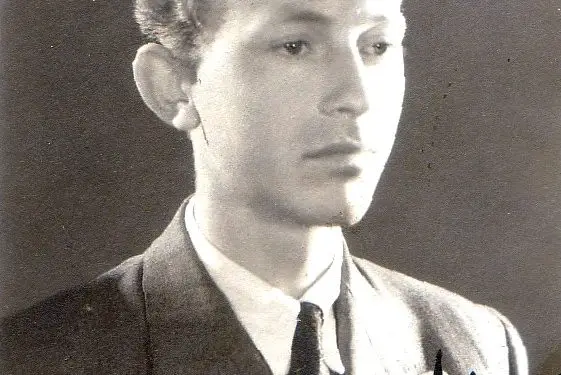
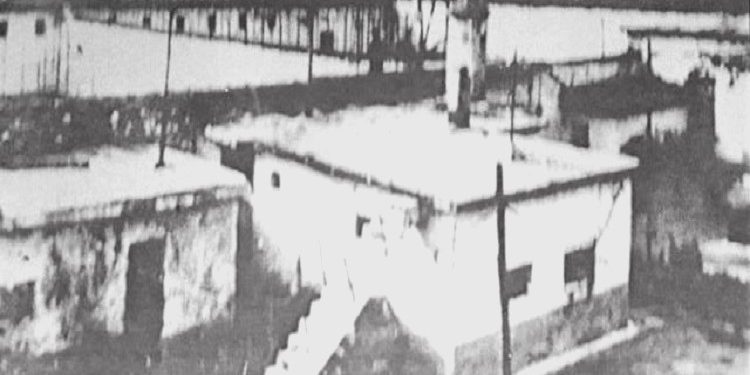
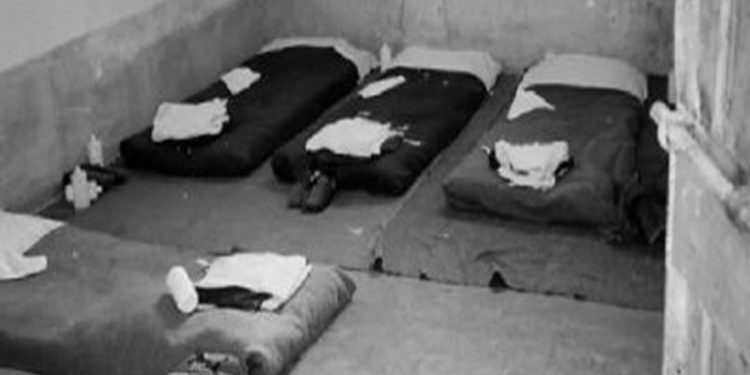
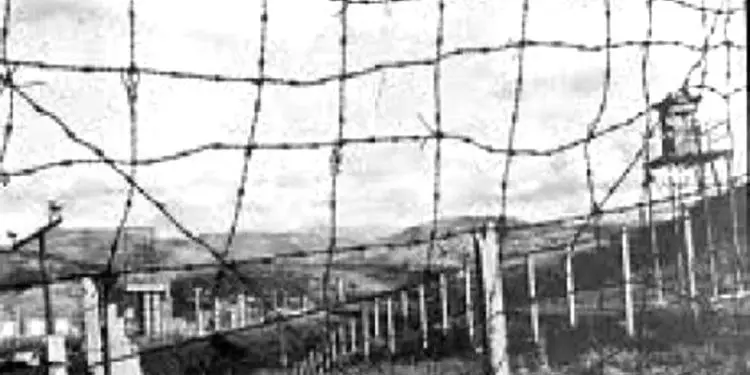
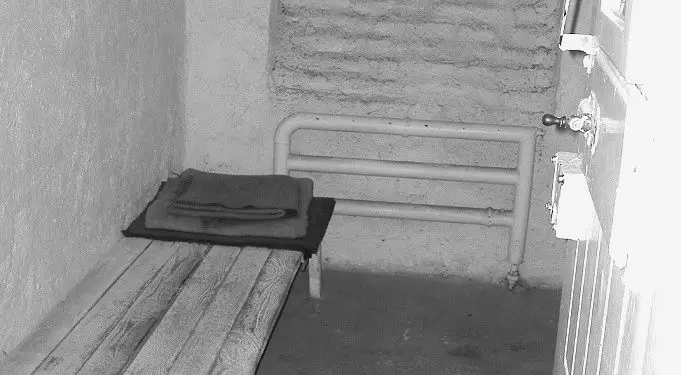
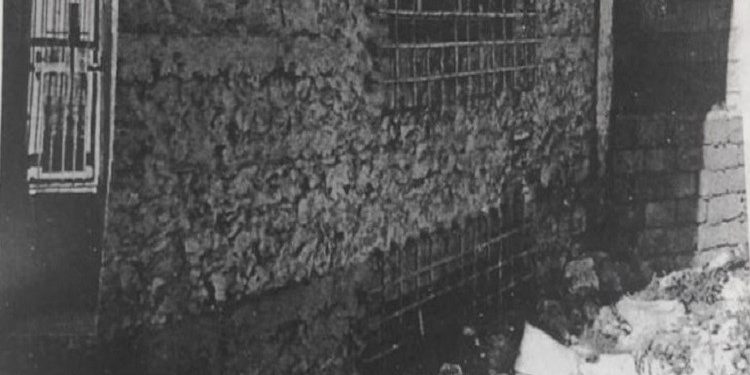
![“The ensemble, led by saxophonist M. Murthi, violinist M. Tare, [with] S. Reka on accordion and piano, [and] saxophonist S. Selmani, were…”/ The unknown history of the “Dajti” orchestra during the communist regime.](https://memorie.al/wp-content/uploads/2026/02/admin-ajax-3-350x250.jpg)
![“In an attempt to rescue one another, 10 workers were poisoned, but besides the brigadier, [another] 6 also died…”/ The secret document of June 11, 1979, is revealed, regarding the deaths of 6 employees at the Metallurgy Plant.](https://memorie.al/wp-content/uploads/2026/02/maxresdefault-350x250.jpg)




